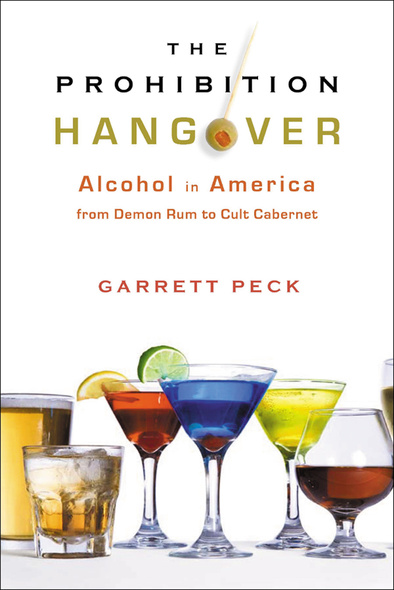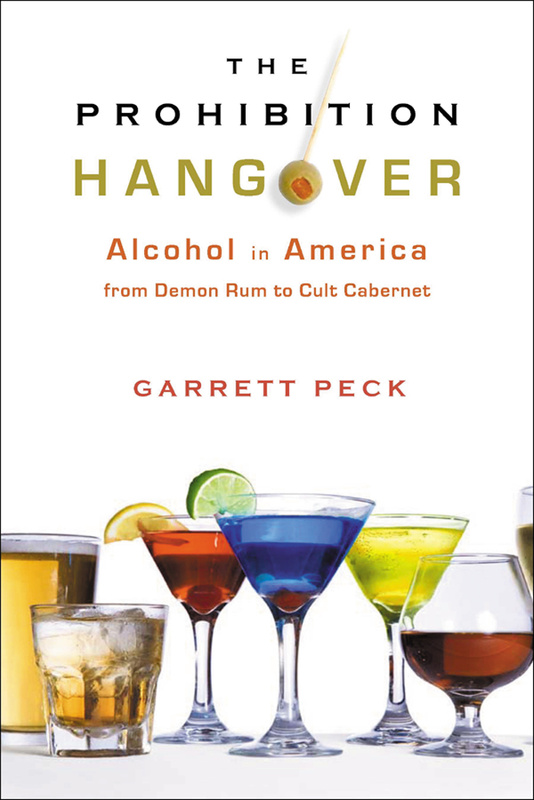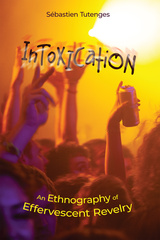Our shopping cart is currently down. To place an order, please contact our distributor, UTP Distribution, directly at utpbooks@utpress.utoronto.ca.
The Prohibition Hangover
Alcohol in America from Demon Rum to Cult Cabernet
In The Prohibition Hangover, Garrett Peck explores the often-contradictory social history of alcohol in America, from the end of Prohibition in 1933 to the twenty-first century. For Peck, Repeal left American society wondering whether alcohol was a consumer product or a controlled substance, an accepted staple of social culture or a danger to society. Today the legal drinking age, binge drinking, the neo-prohibitionist movement led by Mothers Against Drunk Driving, the 2005 Supreme Court decision in Granholm v. Heald that rejected discriminatory curbs on wine sales, the health benefits of red wine, advertising, and other issues remain highly contested.
Based on primary research, including hundreds of interviews with those on all sides, clergy, bar and restaurant owners, public health advocates, citizen crusaders, industry representatives, and more, as well as secondary sources, The Prohibition Hangover provides a panoramic assessment of alcohol in American culture. Traveling through the California wine country, the beer barrel backroads of New England and Pennsylvania, and the blue hills of Kentucky's bourbon trail, Peck places the concerns surrounding alcohol use within the broader context of American history, religious traditions, and governance.
Society is constantly evolving, and so are our drinking habits. Cutting through the froth and discarding the maraschino cherries, The Prohibition Hangover examines the modern American temperament toward drink amid the $189-billion-dollar-a-year industry that defines itself by the production, distribution, marketing, and consumption of alcoholic beverages.
Garrett Peck provides a clear, concise, and stimulating overview about alcohol use and alcohol policy in the United States since Repeal in 1933. The book deftly combines careful research, excellent story-telling, and strong opinions about strong drink.
'The Prohibition Hangover is an excellent book in every way: it is well researched, thoughtful, and entertaining to read. From discussions of policies since Prohibition to Americans' tastes for drinks throughout the decades, this book will appeal to anyone interested in alcohol.'
The adage that 'history repeats itself' has special meaning when applied to Americans' experience with alcohol. At various times in our past, Americans have tried Prohibition, and each time learned, or re-learned, the hard lesson that it doesn't work. Yes, fewer people drink during periods of Prohibition; what ought we to expect, after all? But those choosing to drink, and there are many, drink more irresponsibly and are forced by the law into dangerous, clandestine environments, where health and even life are put at greater risk. For young adults age 18-20 today, a culture of Prohibition has produced these same, utterly predictable results. Kudos to Garrett Peck for advancing this unpleasant yet unassailable truth, and doing so with a convincing combination of fact and style. Impeccably researched and written in a most engaging style, The Prohibition Hangover, brings us face-to-face with those who would have us continue down their own preferred paths of righteousness, and shows us how, far too often, those paths traverse the valley of the shadow of death.
Garrett Peck effectively captures the essence of America's love/hate relationship with alcohol beverages. While some of his conclusions are controversial, his book is well-written and comprehensive.
For journalist Peck, Prohibition is like a bad hangover from which the US has never fully recovered, and he proves that the alcohol controversy has never gone away. The author provides an excellent overview of alcohol in the US since the Prohibition Era. He closely examines the development of the wine, beer, and distilled spirits trades, including the rise of wine and whiskey tourism and controversies regarding alcohol advertising. Peck examines the social implications of efforts to combat alcohol, especially the effects of the Mothers against Drunk Driving campaigns. He concludes that there should be more
emphasis on teaching young people about responsible drinking; though it will be controversial, he makes a convincing case to lower the national drinking age to 18. Highly recommended.
A well-written study of the contemporary liquor industry.






